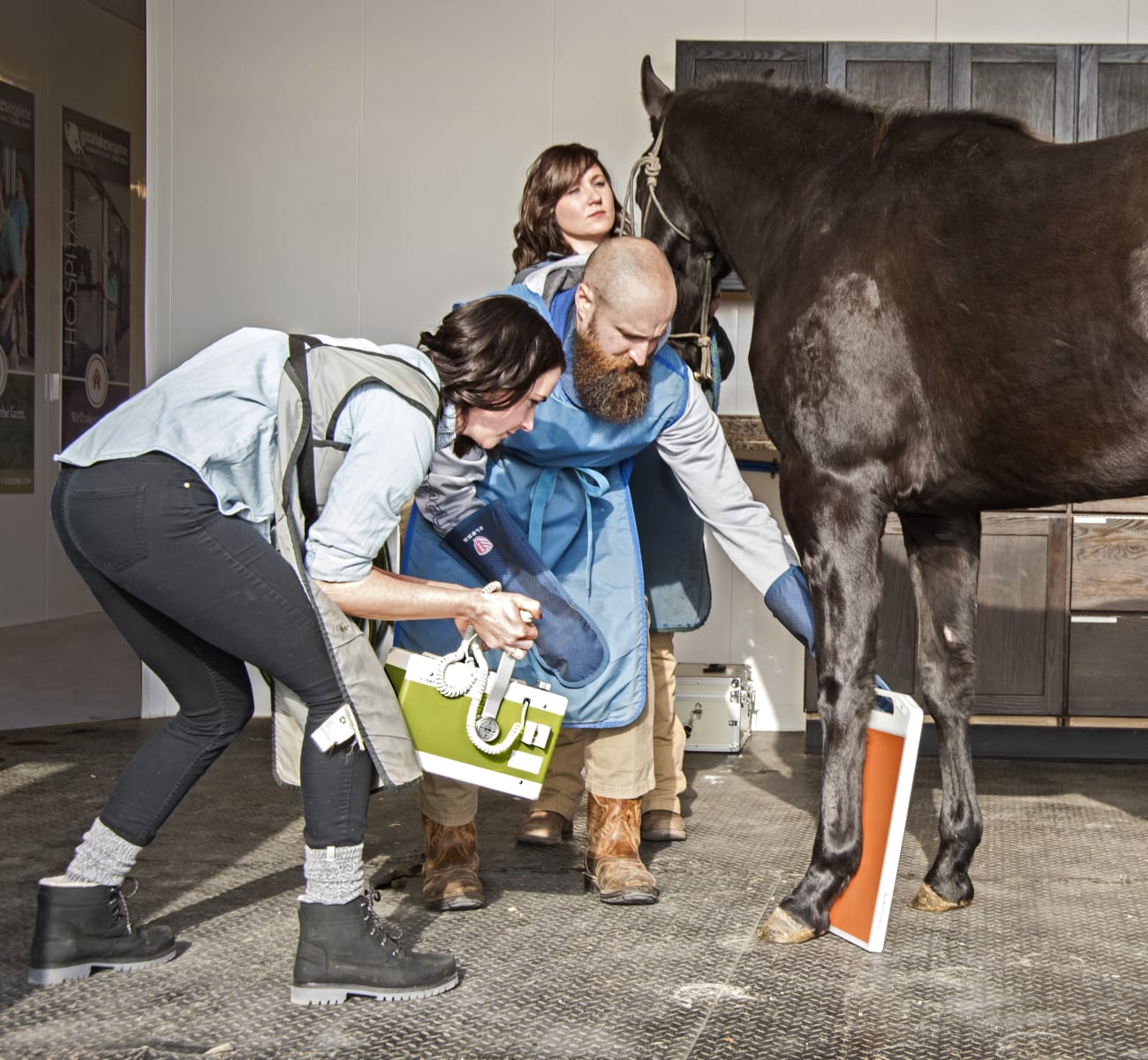Hoofing It: When & Why Your Horse Needs Shoes
Rubber, Steel, Aluminum, Glue on, Nail on, screw on… horseshoes come in all styles, shapes, sizes, and attachment. But when do you need them, and should you use them?

For nearly 20 years, our equine hospital has been devoted to caring for your horses. Our deep admiration and affection for these incredible creatures drive our passion for their well-being.
From critical care and lameness evaluations to routine wellness visits and reproductive care, our hospital doors are open to patients who prefer the comfort of a clean, climate-controlled environment. At Great Lakes Equine, we pride ourselves on utilizing the latest in diagnostic imaging and monitoring equipment, ensuring that our dedicated staff can deliver unparalleled equine care with precision and expertise.
But we understand that not every patient can make it to the hospital. That’s why our mobile field service brings our expertise directly to your doorstep. Whether you are a large barn owner or a backyard enthusiast, our clinicians are here to provide on-farm care tailored to your equine companion’s needs.
Our approach is comprehensive. While we emphasize proper health maintenance, preventive healthcare, alternative medical healing options and rehabilitation, we’re also fully equipped to handle any equine health issue that may arise in the field – including emergencies.
If your horse is experiencing an emergency, we can help. Our years of experience allow us to treat a variety of emergencies. Horses may be seen on your farm or they can be hauled to our facility.
Great Lakes Equine is always evolving to offer the latest and greatest in veterinary medicine to help your horse feeling and perform their best.

Whether you need advice on protecting your horse from parasites or want to learn about common illnesses, we can help.
Rubber, Steel, Aluminum, Glue on, Nail on, screw on… horseshoes come in all styles, shapes, sizes, and attachment. But when do you need them, and should you use them?
As your horse ages, it's really important to adjust their diet and routine care to accommodate their evolving needs. This can include following the best feeding practices for senior horses.
Your Wisconsin Equine veterinarian
Great Lakes Equine proudly serves patients in our Hortonville facility and across Southeast Wisconsin.
24/7 Emergency care. Call to request emergency services.
We are welcoming new patients at Great Lakes Equine. We can't wait to meet you and your horse. Book an appointment today.